Hyundai, BAIC join hands to develop China-only EV brand
South Korea’s No. 1 carmaker is seeking to regain ground in China after plunging sales in the world’s largest car market
By Jan 29, 2024 (Gmt+09:00)
LG Chem to sell water filter business to Glenwood PE for $692 million


KT&G eyes overseas M&A after rejecting activist fund's offer


Kyobo Life poised to buy Japan’s SBI Group-owned savings bank


StockX in merger talks with Naver’s online reseller Kream


Meritz backs half of ex-manager’s $210 mn hedge fund


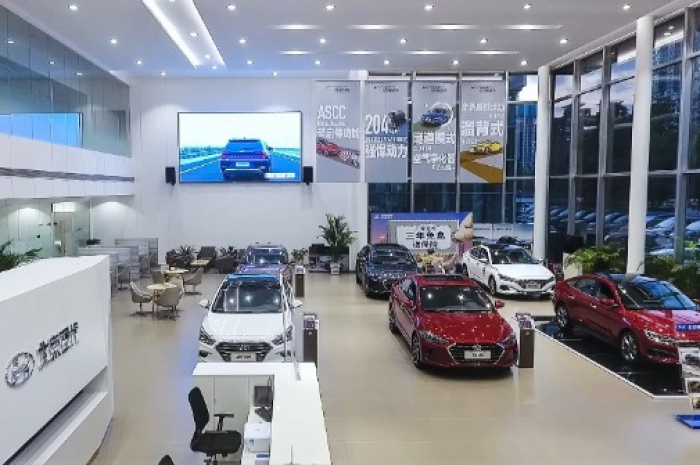
BEIJING – Hyundai Motor Co. has joined hands with Beijing Motor Corp. (BAIC) to debut a new electric vehicle brand specifically tailored to China, betting on EVs to restore its lost glory following sinking car sales in the world’s largest auto market, which is also the No. 1 global EV market.
According to sources in the automotive industry and China on Monday, Beijing Hyundai Motor Co., the 50-50 automobile manufacturing joint venture set up by Hyundai Motor and BAIC, has embarked on a project to develop a new EV brand exclusively for the Chinese market.
The move comes after the two partners’ plan to produce the Chinese automaker’s Arcfox EVs at their JV factory in Beijing collapsed due to a large disparity in financial terms.
Instead, the South Korean auto giant has decided to launch a new China-only EV brand from its JV with BAIC under the code name OE RE.
This is part of Beijing Hyundai Motor’s earlier bid announced in June last year to roll out up to five EV models in China in three years.
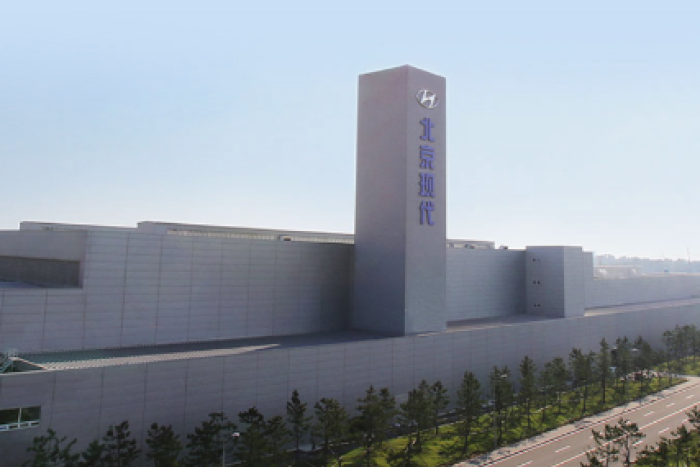
EVS AS A NEW DRIVER IN CHINA
The industry is watching closely to see whether Beijing Hyundai’s new EV project will help the Korean auto giant succeed in restoring its market share in China.
During that time, Hyundai Motor missed the chance to ride the EV boom in China, trailing new EV Chinese brands in overall car sales.
After years of struggling, Hyundai has sold a factory in Chongqing for 1.62 billion yuan ($225.2 million), less than half the amount sought initially, as part of efforts to streamline its operations in China, according to sources in the company. Hyundai confirmed Beijing Hyundai sold the factory late last year.
The Korean automaker once considered a complete exit from the neighboring country but has decided to resuscitate its business in the world’s No. 1 EV market with clean cars.
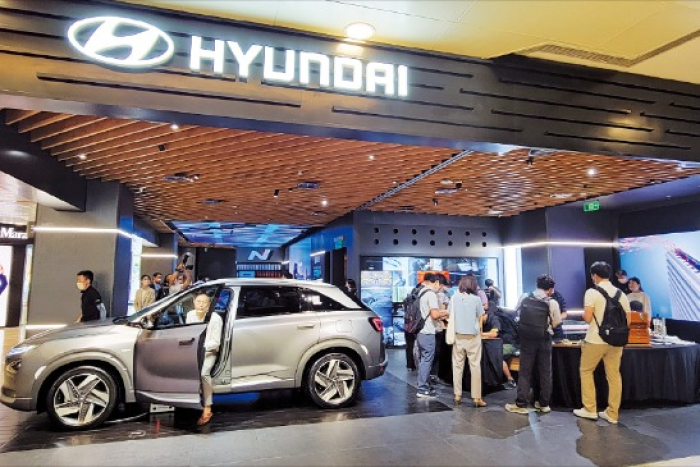
FOLLOWER TO CHINESE EV BRANDS
The latest EV project is part of Hyundai Motor Group’s Executive Chairman Chung Euisun’s strong will to revive China as a key market.
He is said to have called on Hyundai employees to learn EV success factors from Chinese peers, which are also leading the world’s largest EV market, after riding an electric vehicle developed by Zeekr, a luxury EV brand owned by Chinese auto giant Geely Holding Group, last year.
In the fourth quarter of last year, China’s BYD Co. finally beat Tesla Inc. to become the global top EV seller.
BYD has succeeded in significantly improving the quality of lithium iron phosphate (LFP) batteries, which are cheaper but have been shunned by foreign EV makers due to their poor quality.
Backed by the nation’s overall enhanced battery and mobility technologies, China-made EV exports are also on an upswing amid fast migration toward electrification, which makes car design, interface and autonomous driving capability more important than driving or comfort, the key factors in deciding on combustion-engine cars.
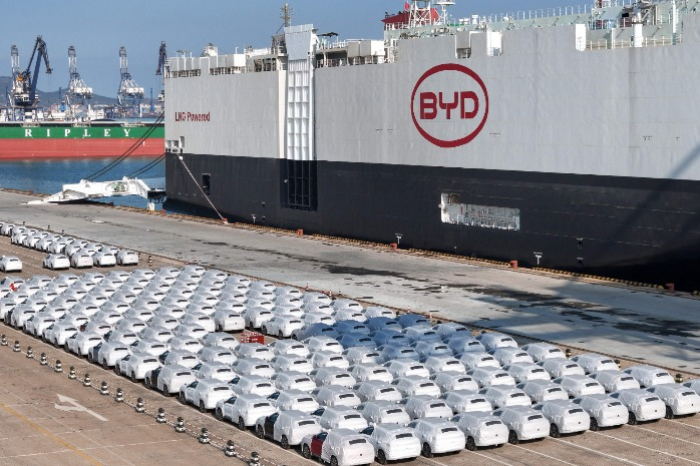
Chinese EVs are meeting such EV demand largely thanks to Beijing’s nationwide support to foster the EV market as the country’s key industry.
China shipped a total of 4.9 million cars abroad in 2023, of which 1.2 million units were eco-friendly cars including EVs, hybrids and hydrogen cars. It was a 77.6% jump from the previous year.
NEW PLAN, NEW GOAL
With the OE RE project, Hyundai Motor has thrown down the gauntlet to Chinese EV makers.
The Korean carmaker is expected to fit the exclusive EV models with cheaper LFP batteries, which will lower the price of its EVs in the Chinese market, according to sources.
The China-only EVs will be a completely new breed, unrelated to Hyundai’s flagship EV brand IONIQ series, with a unique design tailored to the Chinese.
Hyundai Motor previously planned to release its IONIQ models in China but scrapped the plan due to fierce competition with local markers.
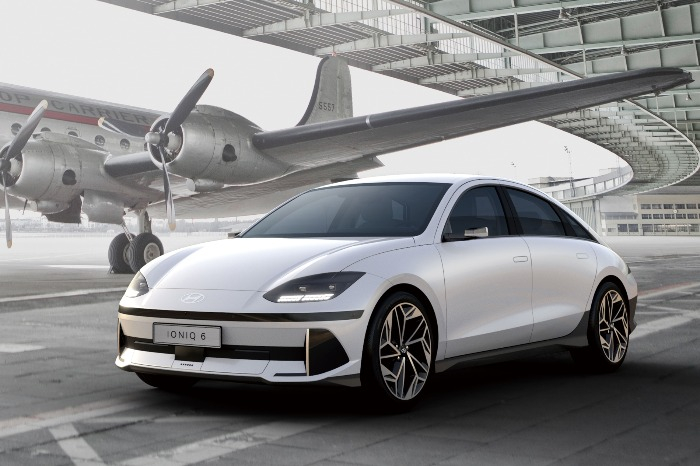
“The company has a big picture to develop China-tailored EVs but has no detailed plans yet,” said an unnamed official at Beijing Hyundai.
Considering China is the world’s largest EV market, Hyundai’s global EV ambition largely hinges on its EV success in China.
“Hyundai is set to take the bull by the horns,” said an auto industry official, referring to the Korean auto giant’s determination to develop China-dedicated EV models instead of abandoning the challenging market.
Write to Ji-Hoon Lee and Jae-Fu Kim at lizi@hankyung.com
Sookyung Seo edited this article.
-
 Mergers & AcquisitionsHyundai sells Chongqing plant at $227 mn for China restructuring
Mergers & AcquisitionsHyundai sells Chongqing plant at $227 mn for China restructuringJan 17, 2024 (Gmt+09:00)
2 Min read -
 Electric vehiclesHyundai Motor to manufacture BAIC’s Arcfox EVs in China
Electric vehiclesHyundai Motor to manufacture BAIC’s Arcfox EVs in ChinaOct 11, 2023 (Gmt+09:00)
3 Min read -
 AutomobilesHyundai Motor’s China restructuring continues with Chongqing plant sale
AutomobilesHyundai Motor’s China restructuring continues with Chongqing plant saleAug 23, 2023 (Gmt+09:00)
3 Min read -

-
 Electric vehiclesBeijing Hyundai to launch two EVs only for China for revival
Electric vehiclesBeijing Hyundai to launch two EVs only for China for revivalJul 18, 2022 (Gmt+09:00)
2 Min read


